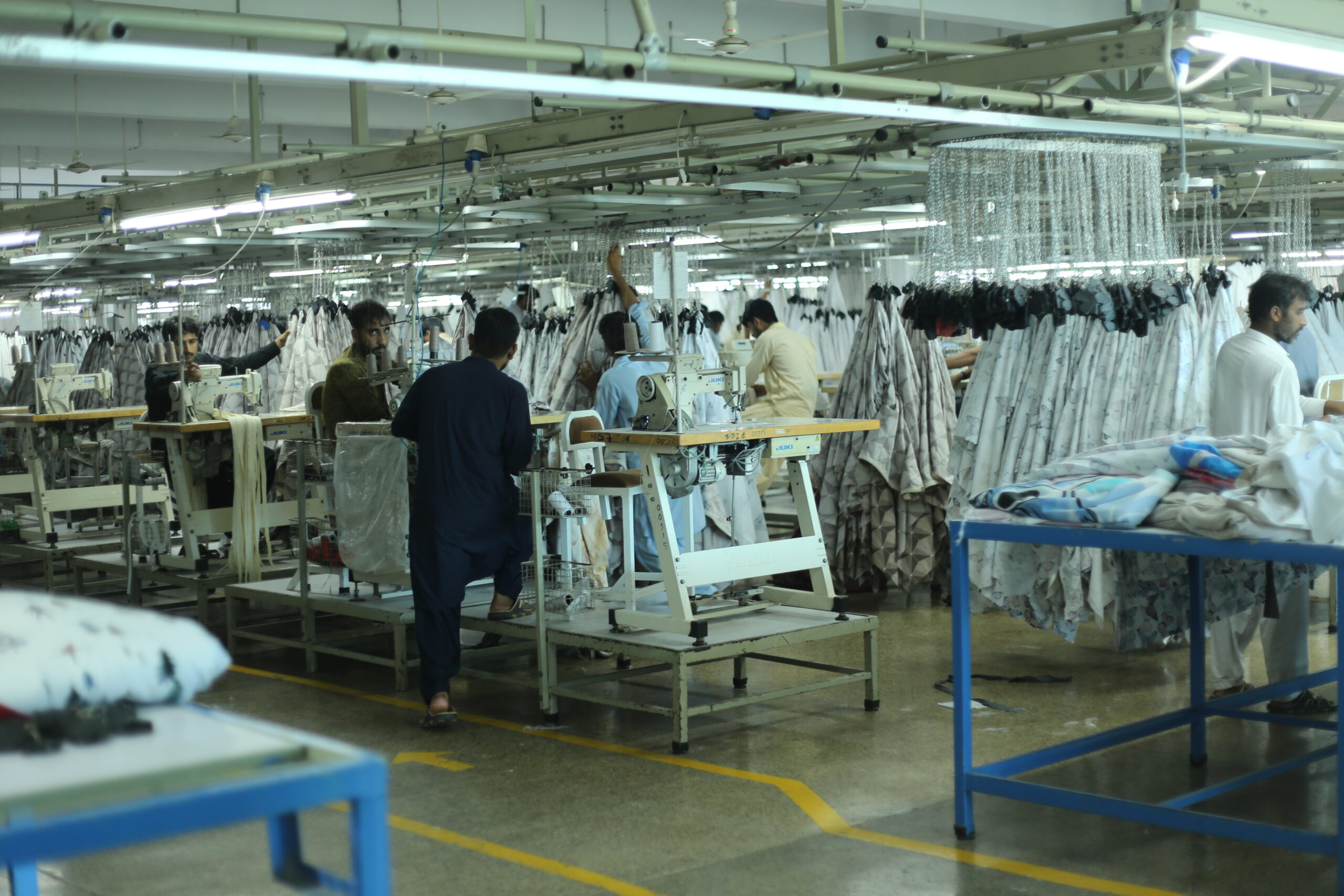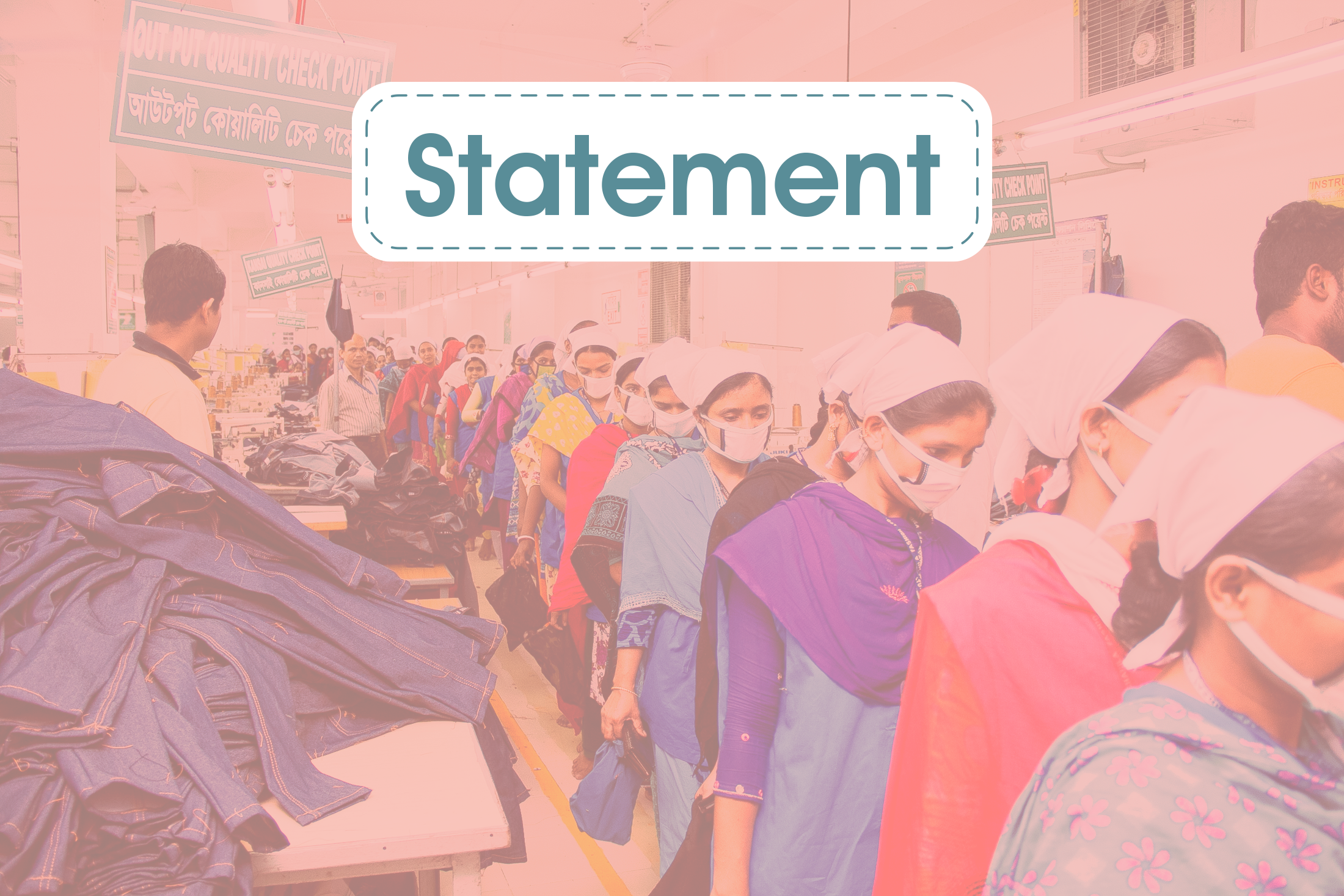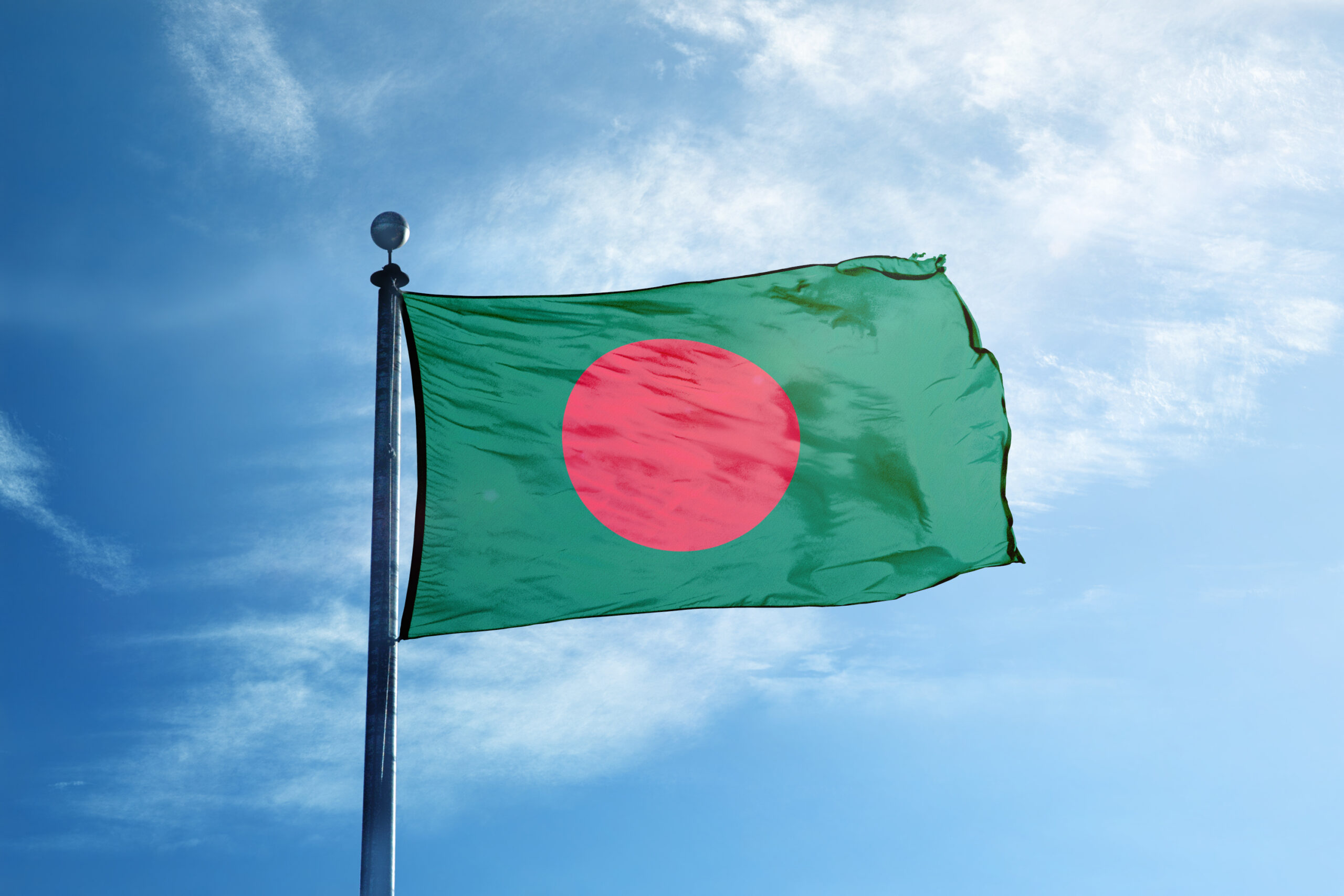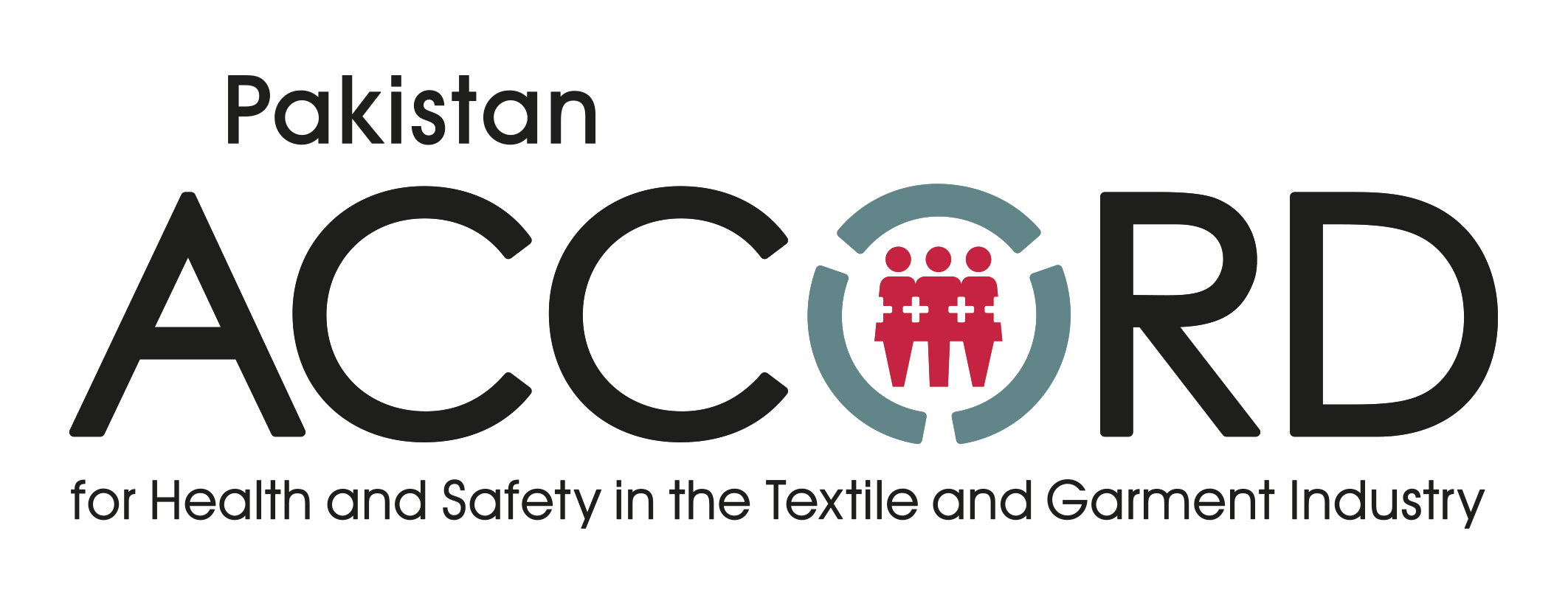
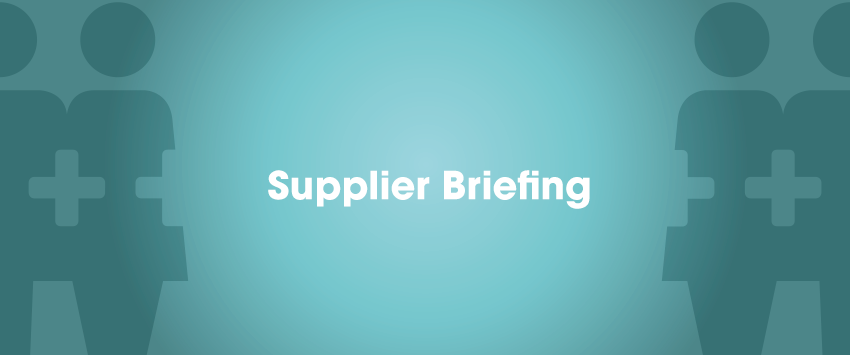
Supplier Briefing #1
These Supplier Briefings are designed for all factories/suppliers listed by Pakistan Accord signatory brands. They include updates on key developments under the Pakistan Accord, along with information on upcoming events, guidance materials, and resources for suppliers.
We encourage all suppliers/factories covered by the Pakistan Accord to read these briefings regularly and to share their recommendations, ideas, and suggestions by contacting us via pakistan.factories@internationalaccord.org.
This briefing includes:
- The rationale for a Pakistan Accord
- Key goals and benefits of the Pakistan Accord
- What factories can expect once the programs start
In a Nutshell
- The Pakistan Accord for Health and Safety in the Textile and Garment Industry (Pakistan Accord) is an agreement between brands, retailers, and global trade unions to ensure health and safety at textile and garment factories supplying Accord signatory brands and retailers.
- The Pakistan Accord agreement was announced on 14th December 2022 with the intention to begin implementation in early 2023.
- The Pakistan Accord covers cut-make-trim (and vertically integrated) suppliers of ready-made-garments, home textile, fabric & knit accessories and fabric mills in company signatory supply chains. The timing and process of the implementation of the Accord in relation to not vertically integrated fabric mills will be determined by the Accord Steering Committee at a later stage.
- Pakistan Accord safety programs include: Independent fire, electrical, structural and boiler safety inspections and remediation, safety committee training, independent complaints mechanism and local capacity-building.
- For the first years, the costs of implementing Pakistan Accord programs are funded by the brands and retailers that sign the Accord. Accord signatories commit to negotiating commercial terms with their individual suppliers to ensure that remediation is financially feasible.
The Rationale for an Accord Program in Pakistan
Whilst much has been done to advance working conditions in the garment and textile industry globally, fires and other preventable safety incidents are still prevalent in the industry.
Since September 2021, the International Accord signatories and staff have been exploring the feasibility of establishing factory safety programs in key garment and textile producing countries, including Pakistan, as a significant source of garments and textiles for Accord signatories. The Accord Secretariat assessed the feasibility of expansion through signatory surveys, desk research, interviews, and local stakeholder consultations. Pakistan emerged as a priority country, in part because of its increasing importance as a garment and textile sourcing country for the Accord brands and the opportunity to renew EU trade benefits.
National Governance Body
A national governance body will be established which will include national constituents, including industry, brands, trade unions, and others upon agreement. The mandate and composition will be determined through a consultative process, which the Accord Secretariat and brand and union representatives will initiate immediately starting in January 2023.
Key Goals of the Pakistan Accord
The safety programs which will be established under the Pakistan Accord aim to achieve the following outcomes at factories supplying to the Pakistan Accord signatory brands:
- Compliance with fire, electrical, structural, and boiler safety standards.
- Functional safety committees and informed workers who address and monitor health and safety at factories.
- A trusted avenue for workers to raise health and safety concerns through an effective complaints mechanism.
- Collaboration with government institutions, ILO – Better Work Pakistan, and other similar initiatives to build capacity and enhance a culture of health and safety in the country.
Benefits For Manufacturers To Participate In the Accord
- Achieve health and safety standards to protect all workers from preventable health and safety incidents.
- Access technical support and advice to implement corrective actions identified by qualified engineers during fire, electrical, structural and boiler safety inspections in accordance with global safety standards.
- Comprehensive training for labour management health and safety committees, promoting constructive labour relations and joint problem solving between factory management and workers.
- Effective resolution of worker grievances through the Accord’s health and safety complaints mechanism, which conforms to United Nations’ standards for effective grievance mechanisms.
- Strengthen and potential increase commercial relationships with more than 180 global brands and retailers signed up to the Accord by giving assurance of health and safety standards through independent Accord monitoring.
- Reduce audit fatigue through collective monitoring of workplace safety for more than 180 global brands and retailers.
- Gain public recognition for maintaining health and safety standards because remediated factories are listed on the Accord website.
What Factories Can Expect When the Accord Programs Start
Identifying factories to participate in the Pakistan Accord
- In early 2023, the Accord will publish a list of all brands and retailers that sign the Pakistan Accord on internationalaccord.org.
- Signatory brands will prepare a list of the garment and textile facilities supplying them in Pakistan and may seek additional data from each factory about each supplier’s facilities to assist Accord prioritisation of program rollout.
- Around March 2023, the Accord will publish the list of factories producing for all Pakistan Accord signatory brands, without mentioning which company signatories are sourcing at each factory.
Phased rollout of Accord programs
- The Accord will identify the first batch of factories to begin implementing Accord programs.
- The Accord will work with the selected factories to prepare for and schedule initial inspections.
- Fire, structural, electrical, and boiler inspections will be conducted and reports will be shared with each factory and their signatory brand customers.
- Each factory will be invited to meet the Accord team to discuss the inspection findings and remediation solutions, then requested to develop a suitable Corrective Action Plan (CAP).
- The inspection reports and CAP will be published on the Accord website.
- The Accord will conduct follow-up inspections to monitor remediation progress.
Public recognition for implementing workplace safety programs
- When a factory has fully remediated findings from the initial inspections, the factory will receive a letter of recognition and the Accord will make a public statement recognising that factory’s remediation.
- When a factory has completed the Safety Committee training program, this will be recorded on the Accord’s public factory list.
The Accord Safety Standard
After consultations with government authorities and engineering experts in Pakistan, the Accord will publish a Pakistan Accord Standard in early 2023 which references the relevant Pakistan Building Codes. This Standard will be the basis for the Pakistan Accord inspections and remediation program. In case factories inspected by the Accord want to discuss a particular interpretation of the Standard regarding their factory safety measures, there will be an opportunity to raise this with an Accord Lead Engineer and ultimately the Chief Safety Officer.
Resources
Stay in Touch
Related updates
February 3, 2026
The parties have agreed to re-sign the Pakistan Accord in its current form, reaffirming their shared commitment to supporting worker health and safety across the supply chains of signatory brands in Pakistan.
January 20, 2026
We extend our deepest condolences to the victims and families affected by the tragic fire at Gul Plaza in Karachi on 17 January.
November 9, 2025
The International Accord is pleased to announce that, from mid-November 2025, the Worker Complaints Mechanism in Bangladesh will be expanded to cover issues beyond Occupational Safety and Health (OSH).
February 3, 2026
The parties have agreed to re-sign the Pakistan Accord in its current form, reaffirming their shared commitment to supporting worker health and safety across the supply chains of signatory brands in Pakistan.
January 20, 2026
We extend our deepest condolences to the victims and families affected by the tragic fire at Gul Plaza in Karachi on 17 January.
November 24, 2025
The International Accord is saddened by the earthquake in Bangladesh and concerned about the reported injuries and loss of life. Our thoughts are with all affected individuals and families.

